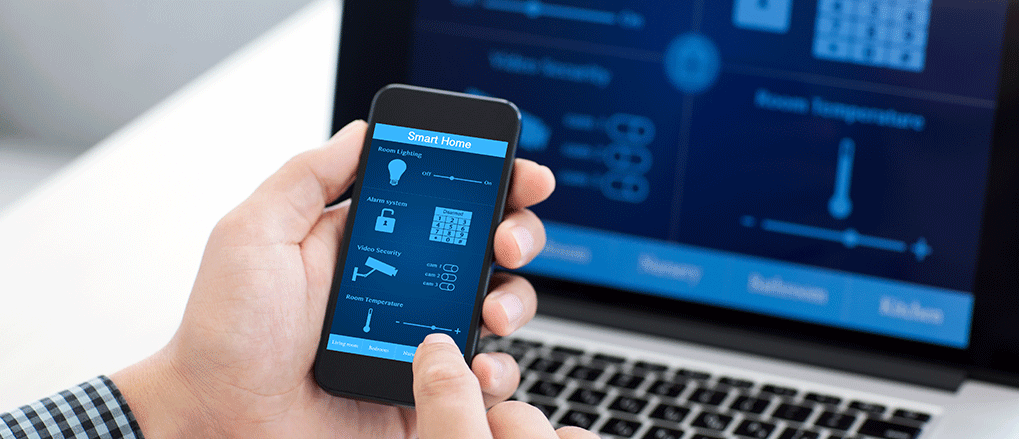Intrusion detection systems are a great way to keep your business safe. They can even be useful in some residential properties. However, most people are unfamiliar with what an intrusion detection system is and how it can be helpful. Cuber hacking is just as costly and dangerous as in-person burglary in some ways.
Luckily, technology has made it increasingly easy to keep our network and valuable information safe. But the best way to do this is to understand your IDS and keep it up to date. Let’s check them out!
What is an intrusion detection system?

An intrusion detection system is commonly referred to as an IDS. It’s a device or software that helps protect cyber attacks and hackers from accessing your home network or your business network in an effort to get valuable information from either the company or your personal accounts.
Sometimes these are also called intrusion protection systems and function the same as intrusion detection systems. The purpose for them is to detect unusual activity throughout your network which would lead them to possibly a threat like a hacker.
Types of intrusion detection systems
There are really two types of intrusion detection systems that are commonly used in today’s market. There are known the following:
- Host-Based IDS – This type of system attaches to a host and will be able to detect internal and external threats through the network. With this type of system, the traffic is constantly being monitored to and from the system. It also has the ability to keep track of running logs within the system. Because it is attached to a host it can really only monitor that specific host which makes broader spectrum monitoring more difficult. But it makes that monitoring of the host super-specific and reliable.
- Network-Based IDS – Network-based systems sound like the title. They work to monitor the entire network of a business or residential property rather than one computer or product. It still monitors the flow of traffic to and from and looks for abnormal activity through the metadata packets.
Choosing one over the other showcases true benefits but also shows the missing gaps that the other can’t provide. This is why working with a hybrid model is one of the more popular options to go with.
How do intrusion detection systems work?
There are a few different ways of detection when it comes to intrusion systems performing. All of them rely on patterns of behavior being broken through abnormal activity. Lets’ break down the different intrusion detection system methods.
- Signature Detection is when the IDS uses a running list of threats or malware to continually refine its requirements for allowing traffic in and out. Once it has detected the fingerprints of a threat it saves that process to not only detect that specific intrusion but anything that is even remotely like it. The more threats that get added the stricter the list becomes. The downside is that when malware or virus is new, it likely will work before being added to the list.
- Anomaly Behavior is the main kind of intrusion detection system method we have been talking about. The computer or network has reliable behavior patterns and when security starts to break those patterns the software is alerted of the malware. The problem is that if the computer misses what positive or negative behavior is then it can throw the system off.
- Another hybrid option that combines the above is to take all the benefits and limit the negatives of either one. This is great because it cancels it out essentially.
Where to place an intrusion detection system?
Most would agree that the most sensible place is to actually place the intrusion detection system is behind the firewall and before the router. The reason is that the firewall can act as a first barrier while your intrusion detection system can handle more threats that are a little trickier.
Keep in mind that we mentioned that IDS can be a hybrid system meaning that it is not always a one-and-done setup. They are typically placed around a property to increase efficiency and how well the system performs around the network.
How do I know if I need one?

Intrusion detection systems really are meant for anyone regardless of whether you are a business or a residential property. The reason being is that even if we are residential property and using a home network, a lot of personal information like our bank accounts, social security numbers, etc can be found on our computers.
More importantly, businesses are a huge target for hacking. There needs to be as much protection for your online network as your actual property itself. Hacking has led to many small to medium businesses in the U.S. filing for bankruptcy. Let’s see if you fall into any of these roles.
- You are a business. You are quite literally any business that works as a for-profit or even a non-profit. Protecting client information and well as your business information is crucial.
- Your business deals with tech, security, or banking. The more security you need for your storefront the more security you need for your online business. Having both is crucial.
- You keep personal information from your business/work at home. If you keep sensitive information at home then having an IDS can be useful to put in the home as well.
As mentioned really anyone can benefit from having these types of intrusion detection systems installed in their network or as a host system. Some businesses need it more than others. For example, a celebrity that needs protection for their home security system will need a strong IDS to protect those passwords so random people can’t gain access.
A business that may have important security measures for say trading is also a business that may need additional online support to protect its business, employees, and clients.
Intrusion detection system FAQS
Intrusion detection systems are not the easiest concepts to understand. This is especially true when it comes down to the details of a system. That’s why this section is dedicated to the most frequently asked questions because we all have them. Even if your questions aren’t met here you can always talk with a security professional to get direct personal answers regarding your concerns.
How do I know what type of security system is right for me?
As we mentioned both kinds of systems have their advantages and disadvantages. This is why maybe a business may use a hybrid solution to counteract these. Having said that not everyone can afford to have both systems so does choose one over the other make more sense in certain situations?
Many businesses will lean towards network intrusion detection systems because the focus relies on noticing abnormal behaviors and threats. Host systems can also be used because it is very reliable and not spread out. However, the host may have more of a focus on internal issues like an employee by accidentally downloading a virus rather than intentional malware.
How is this different than a firewall?
Firewalls work as the initial buffer and will act as to who will be able to come in and access the network and who will not. That doesn’t sound all that different to an intrusion detection system but an IDS works act in a manner once a virus is detected and the threat is clear. It is sort of like the final goalie in the situation. The IDS is also more powerful security and adds the extra level of protection that really can secure your home network or the host or for your business. Having both is incredibly common as they act as the one-two punch.
Does the insurance offer any assistance with intrusion detection systems?
Insurance companies are usually keen to help businesses or even residential properties to protect their properties. The reason behind this is that the safer a property they insure is the less likely they will need to pay out any kind of insurance. IDS are slightly different but having said that any business that has an insurance company may be open to helping with this aspect of security. As mentioned hacking, a small to medium business can be the primary reason they go out of business and/or file for bankruptcy.
Intrusion detection systems are an essential part of today’s world for business. With all businesses working online that means there is a strong possibility that valuable information to the business is online through your network. Protecting this with an IDS is imperative. But where does one get an IDS and how do you know it’s a good one? Leave that to Circle Security Solutions. Through our product showcase and our highly trained team of security experts, we can help you through the installation process as well as monitoring and maintenance!
No exposure online
Intrusion detection systems are integral to a business and sometimes in certain cases even a home network system. With all the information that gets stored in a business network such as client privilege information. Also, all your records and logs of a business is is naturally stored in your systems. An intrusion detection system is meant to pick up behavior that is a threat to your system and a cyber hack.
There are two types of intrusion detection systems to grapple with. There is a system that works with the direct host or a system that requires a network. The network system is more common across businesses. However, they both have their pitfalls which is why some people like to use a hybrid.
A hybrid is also provided for anomaly detection and signature detection. But understanding which is best for your business can still be confusing. That’s why working with a security professional from start to finish can help you determine what is best going to suit your specific situation. Remember using trusted security providers is the way to go because a poor quality system will defeat the purpose of having a system at all!



